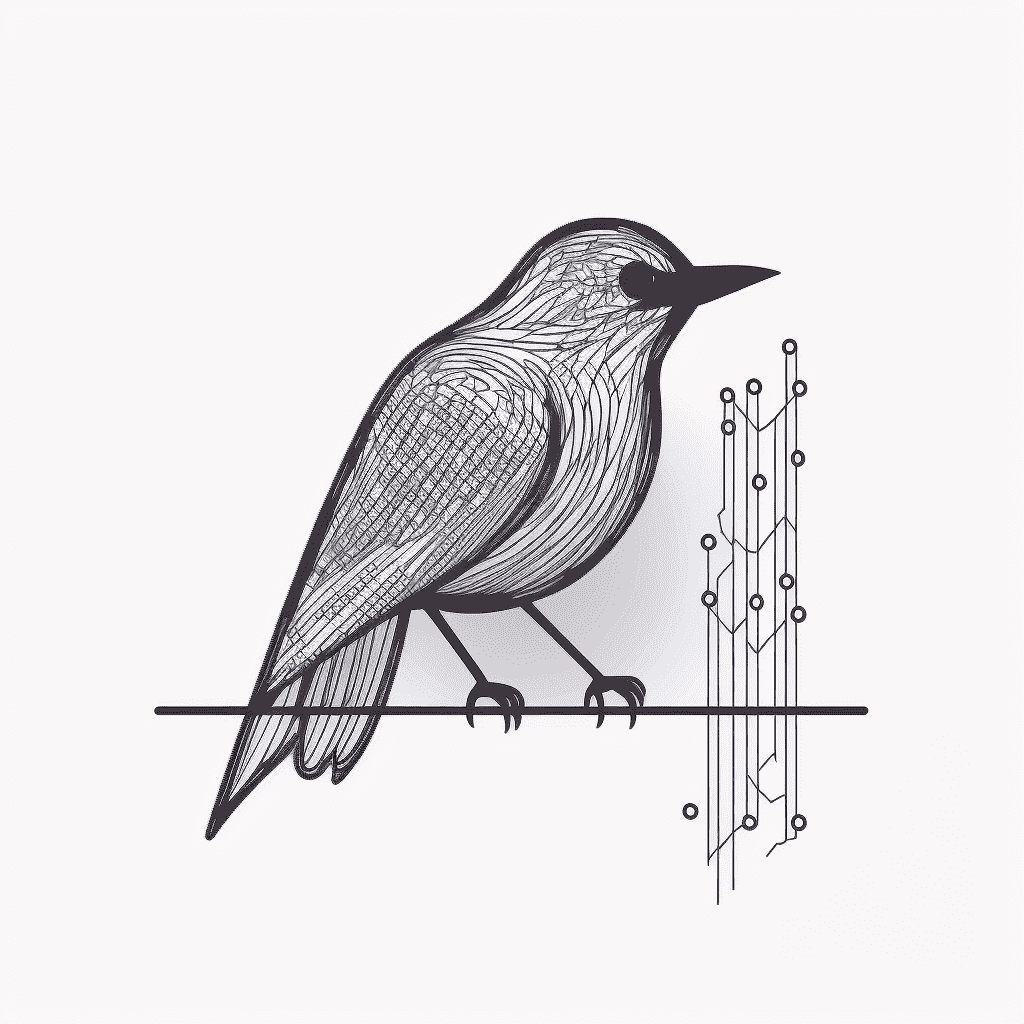Sometimes we are bugged by some commonplace behavior, belief, or attitude, but bringing it up will come off as obnoxious and elitist. We all have those. I will tell you two of mine, in hope I am not unknowingly a snide weirdo.
1 - And/Or is redundant: Just use OR
At some point it was funny in context (like "the OP is stupid and/or crazy). I can hardly find a context that is not similar to this (arguably) ableist template.
In formal logic there is no use case for saying ‘and’ OR ‘or’, because simply OR entails AND.
If there was a valid case it should represent the logical structure of ‘AND’ OR ‘XOR’, but it is obvious that this is OR.
So, whenever we are tempted to say “and/or” it is kinda definitive that just OR should suffice.
2 - A ‘steep’ learning curve means the skill is quickly mastered : Just use ‘learning curve’
Apparently stemming from an embodied metaphor between the steepness of a hill and the difficulty of climbing it, this misnomer is annoyingly common.
I have yet to find a single source that does not yield to this erroneous, ubiquitous misconception.
Same goes for the fancier alternative ‘sharp’ learning curve.
In fact, in a diagram where the vertical axis is the skill mastery and the horizontal is time, a steep curve would mean that the task is quick or easy to master, since it reaches the higher level quickly, hence the steepness.
Since the literal alternative (‘Rust has a smooth learning curve’) will be counter-intuitive and confusing, and I bet nobody will adopt it, I suggest the following solution.
Almost every time you feel the need to reach for this phrase, YSK that probably just using ‘learning curve’ should suffice. For example ‘This language has a learning curve’. It gets the message across, without making others question your position in the graph interpretation learning curve.
What are your mundane grievances?
deleted by creator
Also a steep learning curve is the opposite of something being quickly mastered
Wow did you like …parse the rest of the argument?
Yeah, OP made some kinda quantum leap there…
“and” means “both” or “all” conditions must be true, or items present in a set
“Or” means “any/at least one” condition needs to be true, or item present in a set.
The condition of “and” is already covered if you use “or”. Unlessbyou say “either or”.
deleted by creator
No, logical “or” isn’t exclusive. XOR is one and only one.
“I want either steak or fries”- but not both.
deleted by creator
You misunderstand what a learning curve means. The x-axis is the desired level of productivity/proficiency, and the y-axis is necessary knowledge/skill. A steep learning curve means you need a lot of knowledge/skill to even be slightly productive/proficient, making the learning process daunting for new users. A gentle learning curve means you get rewarded throughout the learning process with frequent productivity/proficiency gains. A “cliff” means there will be a long period of learning with little to show for it until the end.
Very much this. No one ever talks about the labels of the axes of the learning curve. Time vs ability is not an unreasonable guess, but as you point out incorrect.
I assume most people get by using the term without really thinking about the actual graph at all.
I see, so you need way more knowledge to get a small increase in reward, hence the steepness. Point taken.
Edit: Wikipedia though
A learning curve is a graphical representation of the relationship between how proficient people are at a task and the amount of experience they have. Proficiency (measured on the vertical axis) usually increases with increased experience (the horizontal axis), that is to say, the more someone, groups, companies or industries perform a task, the better their performance at the task.[1]
The common expression “a steep learning curve” is a misnomer suggesting that an activity is difficult to learn and that expending much effort does not increase proficiency by much, although a learning curve with a steep start actually represents rapid progress.[2][3]
An activity that it is easy to learn the basics of, but difficult to gain proficiency in, may be described as having “a steep learning curve”.
That’s what the phrase means, I’ve never heard someone use it to refer to a learning curve that starts steep. I’ve always heard it used to refer to activities where initial progress is slow and proficiency is delayed until after significant experience. A “standard” learning curve is a diagonal line, a “steep” learning curve is more like an exponential function.
Huh. That’s an interesting way to explain what people mean when they use “steep learning curve” that way. I’d always been taught that a learning curve is proficiency vs. experience.
People attempting to apply the rules of one field to another, even though it makes no sense. Say, applying rules of formal logic to everyday language, and/or expecting others to do the same.
Nice premise, but I don’t think there are valid examples of everyday use of ‘and/or’ where it could not be interchangeable with just or. Like, formal logic aside.
In everyday use, “or” is often understood as logical XOR. If you only use “or”, you’re less clear than if you use “and/or”. Every example where somebody uses “and/or” is a valid example where it’s not interchangable with just “or”, because it changes the meaning of the sentence.
As a public servant, government policy is full of situations where ‘and/or’ means something distinct from ‘or’.
“You can apply for benefits for yourself, your spouse, and/or your children.” VS “You can apply for benefits for yourself, your spouse, or your children.”
Which formulation clearly conveys you can apply for benefits for all 3 persons?
“You can apply for benefits for yourself, your spouse, or your children.”
“You can apply for benefits for yourself, your spouse, and your children.”
100% chance that many people would interpret that as saying you can only get benefits for everybody together. The cannier folks would at least ask: “So can I apply for benefits for only my children, or only for all of us together?”
Better phrasing: “You can apply for benefits for any or all of the following people: You, your spouse, and your children.”
Source: Years of customer service experience.
Ok but just for the sake of being annoying, you had specifically excluded AND as an option. ;)
1 - And/Or is redundant: Just use OR
So, whenever we are tempted to say “and/or” it is kinda definitive that just OR should suffice.
Fair enough.
Formal logic is separate from natural language and the term “or” has a different meaning in each place.
I failed it at uni.
It doesn’t matter if you’re black or white.
It doesn’t matter if you’re black and white?
Can you be black and white simultaneously?
Probably not a great example, but I couldn’t easy accept the assertion or = and.
No wonder you failed. The critical comparison would be ‘and/or’ = ‘or’, not ‘and’=‘or’ .
So be it.
I think they had a written language for it all with symbols and whatnot. That was about thirty years ago now.
I like the clarifications from others that generally speaking we think of ‘or’ as ‘exclusive-or’, whereas formal logic uses ‘or’ as ‘inclusive-or’.
Driving into the intersection when the light is green, even though you can’t get all the way through, and then when the light changes and you’re in everyone’s way delaying 30 people by 2 minutes because you wanted to be able to wait stationary in one location instead of a different location… looking helpless like what do you mean, it’s not MY fault, there’s a car in my way I can’t go anywhere
I for serious fantasize about just plowing into the side of the person’s car and then getting out like what do you mean, it’s not MY fault, my light was green means I have the right of way and it’s your responsibility not to be in my way, you fuckin toad, do better next time, anyway here’s my insurance information
Yes!! Don’t enter the intersection if you can’t exit it!! Also, how did covid make people think it’s ok to keep going when the light turns red? Why has that worsened in the last 4 years?
you fuckin toad, do better next time, anyway here’s my insurance information
This de-escalated kinda uneventfully
deleted by creator
I thankfully don’t drive much anymore, but I’d get annoyed when I’d wait before the intersection, and people would be honking at me. Like, do you want me to block the intersection? Maybe they just can’t see and assume I’m a moron
A lot of those people are probably the same sort that hold the subway doors open and make thousands of people late just so they can cram in.
The people honking are the ones who would be blocking the box if they were in your position.
I’ll allow ONE person waiting in the middle to turn. If the light turns red they go on their way. If they are able to turn before it turns red, then the next person can move up and be on deck.
No love at all for people who just shove in as close as they can to their target without paying attention to the traffic around them.
This could sound like a dig on op but it’s not, it’s a different bugbear from elsewhere:
Thinking Linguistic Pedantry makes you a cool guy.
It doesn’t.
Anyone who points out minor spelling mistakes as some manner of gotcha should be made fun of aggressively.
This guy (the guy who points out pedantic things), always thinks it shows how smart they are. Instead it shows how much of an ass they are.
Luckily here on the internet we all are to a degree so it doesn’t matter. Goddamn those people at parties though, ffs yes I know the difference. I don’t care. I’m at a party, it’s douchey to bring grammar mistakes up at a party.
Oh they’re insufferable on the internet too. It’s worse at parties because it screams “bad room reading abilities” and “terrible social skills”, but if I were to focus on that end, as autistic as I am, I would be doing a pot-kettle.
On the internet they bring down the level of the conversation, turn any discussion into semantic wankery, and generally make any thread they show up for unpleasant.
Except for making fun of people who write ‘should of/could of’. I want to strangle someone every time I see that.
I have two off the top of my head. First, inappropriate apostrophe usage. Far too often I see people writing things like tea’s, hot dog’s, bagel’s, and so on. They’re not just there to alert the reader that an s is coming!
My other gripe is people standing in a grocery aisle to ponder products or chat with someone while parking their cart horizontally so that nobody can get past them. It really marascinos my cherries when I need to either go down another aisle to go around them, or worse, I need to talk to someone to ask them to please scoot a little.
I 100% agree with you. But also my iPhone puts 's on anything and everything. And’s <- look at that shit. That’s not even fucking possible except in the most unusual of sentences. I try really hard to correct all of them, but a lot of them slip through because I can’t catch them all. Especially when it helpfully updates it after I’ve typed the next word.
My local grocer has “Tea’s” on the sign for that aisle and it bothers me every time I see it.
It’s the tea’s bag. It’s the hot dog’s cheese. It’s the bagel’s (whatever bagels claim ownership of.)
I love this post, but I need to pick up on your first grievance. In general English, when people say “or”, they actually mean XOR most of the time
Cider means a fermented apple beverage. It’s not a class of beverage. So the phrase apple cider is redundant. My nit pick is that I think cider should be ANY fruit fermented beverage. Beer isn’t only barley, it’s any grain. Wheat beer, gf beer has no barley. Etc etc. But a fermented pear drink isn’t pear cider, it’s perry.
I think cider should be a group of fermented fruit beverages with no added sugar and usually carbonated. Alcohol under 10%.
Where do you stand on barley wine?
I don’t stand on it, I drink it.
I joke. IDK. I’ve never had it. I’m not much into wine. I’ll have to think about this, but I get your point: is wine called that bc it’s fermented grapes or is it some broader category? Is anything over 10% (or wherever the line is drawn), usually not carbonated, usually stored a year or more, is that wine? Does it need to be made from fruit?
Exactly. If you can resolve the wine/cider/beer nexus, you’ve got my vote!
But a fermented pear drink isn’t pear cider, it’s perry.
Huh, today I learned. Perry is marketed as pear cider in my country, but I guess we all know how closely marketers like to stick to the facts.
I strongly dislike when, in traffic, someone comes to a full stop to give the right of way to another person who should not have had it. It is very unexpected and will cause accidents. Secondly, not getting up to speed, especially on the higher speed roads/highways/freeways.
Using “Next” to refer to the one after the literal next when speaking in terms of time. “Next weekend” does not mean in 5 days it means in 12 days. But “Next Friday” could be in 4 days. It seems to vary dependent on the time of the week as to whether or not people will skip the truly “Next” point in time they are referring to.
I can understand why for much of what I mentioned, that does not mean I agree or enjoy it. Nor will I likely ever.
For the traffic one OH MY GOD I HATE THIS.
The people think they’re being so nice, and no! You’re not being nice! You just slowed down traffic for everyone behind you to help one person. You overall averaged out to be a huge asshole! Just keep driving, they’ll figure out how to get in, it’s not your job to let them in.
Using “Next”
So true! I can also confirm it happens cross-linguistically
When people ask a question in the title and then answer it as text on the post instead of a reply to the post. If you answer it as a reply to the post then any comments stay in one thread instead of littering the entire post.
This isn’t a specific dig against you OP, tons of people on lemmy do it. I think /r/askreddit had a rule against it.
I see. Looks like it could keep things tidy. I will try to stick to this solution then.
My minor grievance? People framing arguments specifically to complain about things. Your second example about the learning curve is perfect.
In fact, in a diagram where the vertical axis is the skill mastery and the horizontal is time, a steep curve would mean that the task is quick or easy to master, since it reaches the higher level quickly, hence the steepness.
If you literally flip the axis labels it makes perfect sense. If vertical axis is time and the horizontal axis is skill, it takes exponentially longer to increase your skill mastery the more you understand it, much like many real world tasks.
Alternatively I always viewed ‘steep learning curve’ as a time skill ratio that you must meet or exceed rather than a guarantee of how your skill will develop over time.
After all, ‘steepness’ in isolation is meaningless (depends on your axis scales), but a comparitive ‘steeper than you can handle’ is more meaningful to me
See my other comment, Wikipedia says the axes are as I said.
Edit: And illustrating time as the vertical axis, it is wildly uncommon. So this ‘framing’ rebuttal is like …hysterical.
This one baffles me: leaving a huge gap when stopping a vehicle at a traffic signal. Ordinary intersection in flat terrain, I’ll pull right up to the marker/crosswalk/vehicle ahead:
|=|[::]Sometimes see other drivers a bit back. OK fine, maybe it’s alright. Suppose it’s good in the event of a stopped rear-end collision, to protect pedestrians/vehicles in front:
|=| [::]But what’s with this nonsense? Is it just me? I don’t remember seeing this earlier than the last ten years or so. Not a sensible safety gap, no. I’m talking two, three or more car lengths of space! Nowhere near the inductive loop sensor:
|=|<---------->[::]This is without any property entrances on either side, mind you. That I could understand since it leaves a space for traffic to pull out, or in from the oncoming lane. This just seems to occupy space for no purpose other than to reduce traffic density on one block and increase it in the trailing block (?).
Completely baffled; what am I missing? Where did this come from? Is it just me? Even worse is when I stop my vehicle behind theirs and then they creep forward a car length or two, making me look like a dummy.
I’m grieved by the opposite: people that cover or go past the crosswalk and then stop.
That one gets me too :) If I’m on foot I often consider just hopping up and walking across the hood.
edit: Actually there is one circumstance in which I will drive past the crosswalk and stop: green-signaled left turn where oncoming traffic has right of way. Stop past the crosswalk, complete the turn when the way is clear. It’s legal where I live, at any rate.
Tall people in cars where the upward visibility is poor? Sometimes that’s me and my son is 7" taller than me and sometimes he drives my car.
You’re supposed to stop where you still see the tires of the car in front touching the ground because safety, so says my driver’s ed teacher 15yr ago. Almosy nobody does it, but that could explain your second scenario.
They’re trying to cheat the traffic sensors to make the light turn faster. Traffic lights usually have weight sensors beneath the road to detect how much traffic is waiting on the light, and if you stop on a position further back it makes the light think there are more people waiting than there really are.
(Don’t try to do this unless you can tell where the sensors are.)
This bothers me a bit, too, but then I remind myself about my former co-worker who almost died when somebody slammed into him at 45 mph while he was stopped behind another car, slamming his face into the steering wheel before the airbag even had a chance to deploy, then slamming his car into the back of the one in front of him.
I usually leave a little extra room ever since that happened. I’ll always remember seeing his busted up face and broken teeth.
1 - And/Or is redundant: Just use OR
At some point it was funny in context (like "the OP is stupid and/or crazy). I can hardly find a context that is not similar to this (arguably) ableist template.
In formal logic there is no use case for saying ‘and’ OR ‘or’, because simply OR entails AND.
I disagree with you about your assessment.
andmeans all items in a listormeans any items in a listand/orcan mean all items must be true, or any one item can be true.
So let’s keep it simple, and use the example of receiving a drink and/or a bag of pretzels on a flight. You can choose to have both, or you can choose either the drink or the pretzels. Focusing on the or condition here, you’re only choosing one of the items. In your logic, always using or would imply you’re only ever choosing one, when in reality you also have the choice of choosing both.
2 - A ‘steep’ learning curve means the skill is quickly mastered : Just use ‘learning curve’ … I have yet to find a single source that does not yield to this erroneous, ubiquitous misconception.
Maybe we’re using two different search engines, but when I DDG “steep learning curve”, the results agree with you that it means the speed (fast) of learning a task or skill.
Since the literal alternative (‘Rust has a smooth learning curve’) will be counter-intuitive and confusing, and I bet nobody will adopt it, I suggest the following solution.
You’re looking for
shallow learning curve, and is already commonly used.Almost every time you feel the need to reach for this phrase, YSK that probably just using ‘learning curve’ should suffice. For example ‘This language has a learning curve’. It gets the message across, without making others question your position in the graph interpretation learning curve.
Again, I disagree with you. The use of
steeporsharpor no qualifier at all is a subtle, yet important, distinction for the type of learning curve something has.Everything new has a learning curve. Some thing are easier or more difficult than others. If someone does not understand the correct usage for steep or shallow, then take the few moments to teach them; they’ll in turn learn something and go on to teach other people too.
There is a time and a place to simplify your language; especially if it helps the person(s) you’re talking to better understand you. But I believe that in these two cases, the uses are warranted, as they can and will change the meaning of what you’re saying dramatically.
My first grievance is people who always use “I” when sometimes they should be using “me”. e.g., It’s difficult for my son and I to talk to each other when he’s very upset.
The rule of thumb is that if you remove the other person in the sentence, does it make sense? As in the example above, no one would say “It’s difficult for I to talk…,” instead you’d say, “It’s difficult for me to talk….”
Also, while “I” comes after the other person, “me” comes before. So the correct sentence would be, “It’s difficult for me and my son to talk to each other when he’s very upset.”
I believe this problem occurs because, at least for me, English teachers were lazy and didn’t teach us the differences. They would drill into us to never use “me” and always use “I”.
Another mundane grievance is when people go to correct somebody over a simple mistake in wording. My thought process is that if everyone understands the speaker’s meaning, correcting them right then and there only detracts from the conversation; and, it makes the speaker look (and probably feel) dumb. It adds very little, if any, value. Just let it go. If you genuinely need to correct someone, wait until later and do it in private. But be prepared to be ignored or scoffed at.
Not linguistic but culinary, mainly burgers, no, the chicken sandwich in a round bun isn’t a burger, same with pulled pork, it’s not a bun that defines a burger, it’s the patty, might be a pork, chicken or even vegan, it might even be a patty wrapped in a piece of lettuce for that matter, it’s s burger
You are absolutely right.
What are people trying to pass as burgers?














